“As Singapore has no poverty line or minimum wage, there is a lack of [insight into] the issue of food insecurity in the Singapore context,” speculates Ms. Nichol Ng, co-founder of NGO The Food Bank Singapore Ltd. “With much of poverty hidden in shelters and the great housing that the government provides, we feel that the next basic need that has to be addressed adequately is food.”
Despite growing a measly 8 per cent of what it consumes, Singapore has access to abundant food sources, Ms. Ng points out. It even lands on top of the list of all countries in the world in terms of food security. “And yet up to 30 per cent of this imported precious resource gets dumped,” she adds in horror.
“Singapore imports over 90 per cent of its food,” shares Mr. Bjorn Low, co-founder and managing director of social enterprise Edible Garden City. “On the other hand, food waste in Singapore makes up about 10 per cent of the total waste generated, only 16 per cent of which is recycled.”
“That is 763,000 tonnes of food waste and loss generated in 2018, according to the NEA,” adds Mr. Daniel Tay, co-founder of the ground-up movement SG Food Rescue. (Food loss is referred to foodstuff that falls off the food chain during production, processing or retailing and do not reach consumers. Meanwhile, food waste refers to foodstuff thrown away by consumers.)
Mr. Tay further cites a 2019 Singapore Environmental Council (SEC) study, which reports a loss of 342,000 tonnes of food from the Singapore food chain in three categories: fruits and vegetables, seafood and fish, and eggs. “Another 51,000 British tons are lost outside Singapore,” says Mr. Tay.
Ask anyone about food security in Singapore and you will get similar figures – and only some which paint a bright picture.
Food insecurity affects a growing part of the population as cost and standard of living increases and income gaps widen, Ms. Ng points out. “The cost of food has risen much faster than the salaries of those in the lower income group. There are people who go hungry on a regular basis,” she says.
In the midst of the bleak reports, however, community-initiated support systems are thriving all over Singapore in the form of charity and volunteer organizations, as well as grassroots and interest groups that tend urban gardens and rescue food destined for the bin.
These "food activists" are attracting followers, including those whose interests may lie further afield – a personal rejection of consumerism, a commitment to the environment, or even a philosophical conviction. Whatever the case may be, their effort is giving those who are in need a much better access to food and food resources.
“Singapore has a fairly high standard of living, and yet we personally hear stories of people who struggle with basic needs,” says Ms. Sim Bee Hia, chief executive of independent food charity Food from the Heart. “Singapore’s needy might not be dying of starvation, but there are those among them who worry about their next meal. A wholesome meal is likely a luxury to them.
“In five years’ time, we will probably face the ‘new poor’, a group of citizens who grew up post-Singapore independence and are literate. Their expectations of food security would be quite different.”
- MR. BJORN LOW: URBAN FARMS FOR POSITIVE IMPACT
- MS. NICHOL NG: GIVING WITH A VIEW TO THE FUTURE
- PROF. MICHAEL S. STRANO: TO FEED THE WORLD
- MS. SIM BEE HIA: CONSISTENT, RELIABLE, BETTER GIVING
- MR. DANIEL TAY: RESCUING FOOD AS A MORAL ACT
Mr. Bjorn Low: Urban Farms for Positive Impact
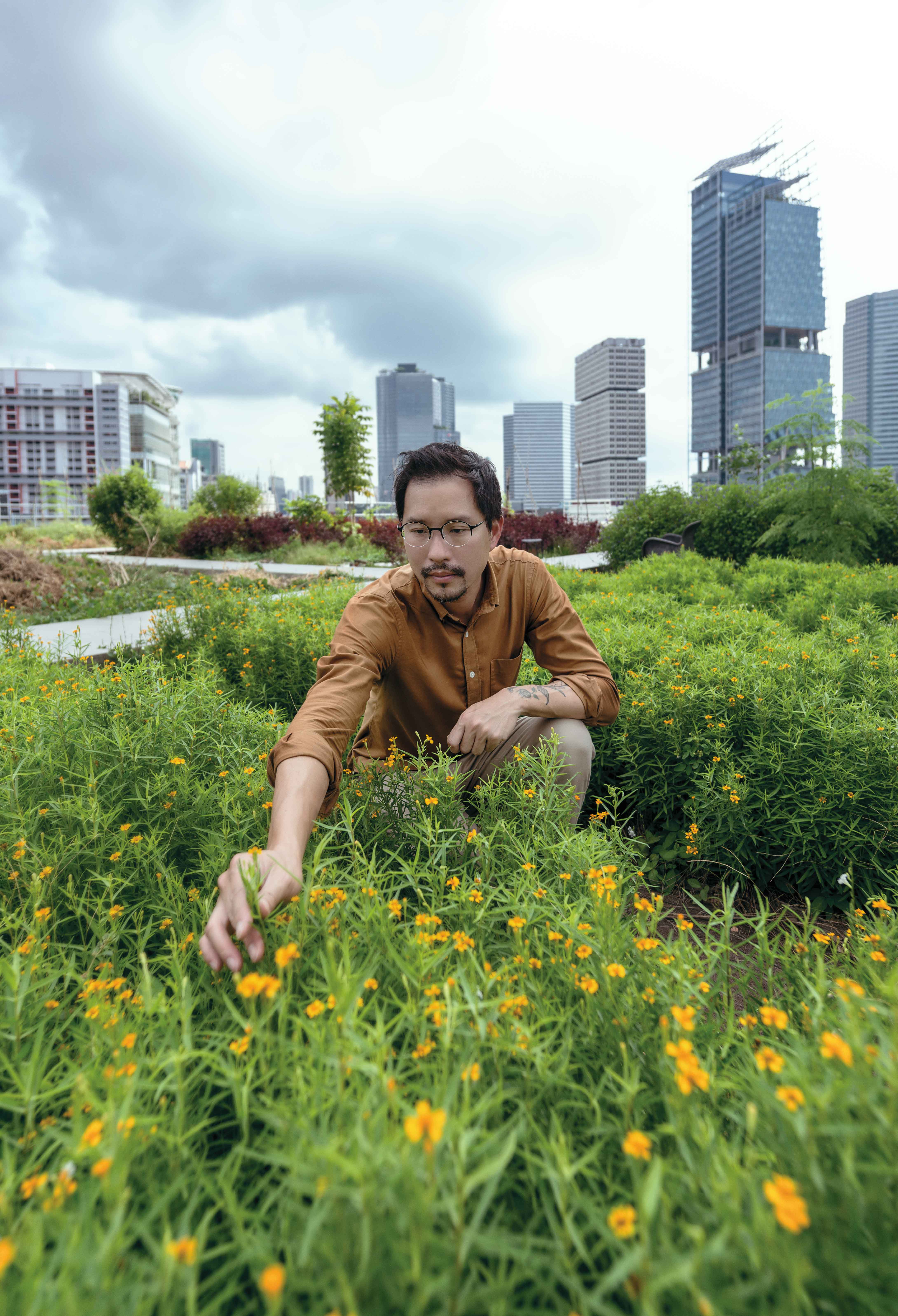
“Edible Garden City is a social enterprise dedicated to creating social change through community-centric agriculture,” according to Mr. Bjorn Low, its co-founder and managing director. “We are a diverse group of local farmers, with the common goal of helping cities become more self-sufficient by growing food in under-utilized spaces. We also share the same belief that growing our own food connects us with nature and cultivates a sense of community.”
Established in 2012, Edible Garden City aims to empower Singaporeans to grow their own food, and to support local farmers for increased food resilience. “With the prevalence of technology,” Mr. Low says, “natural farming methods should not fall on the wayside, but should be adopted as a way to heal the environment, generating minimal waste, and returning nutrition back to earth. This sustainable way of farming ensures that there will be food sustainability for future generations.”
As a social enterprise, Edible Garden City hires inclusively. Its employment policies and projects engage the elderly, at-risk youths and ex-convicts. “We currently employ six adults with autism, and we hope that by giving them gainful and meaningful employment, they will be able to be more independent and happy, reducing the load on caretakers and the society,” Mr. Low says. Inclusive employment is also a way for the group to break down social barriers and encourage people from all walks of life and abilities to mingle and get to know one another better.
Edible Garden City generates revenues from its activities. It has established business units such as Foodscaping (or edible landscaping) and has built more than 200 gardens in schools, restaurants, offices and homes, many of which are on under-utilized spaces like rooftops. “We have activated rooftops as production gardens (at Funan and Raffles City) to grow produce for chefs and our Citizen Box subscribers. We currently supply microgreens, leafy greens, edible flowers and herbs to about 70 restaurants and 50 subscribers a week.”
In 2017, it launched the first closed-loop production farm, working with partners to recycle food and other organic waste into sustainably grown, pesticide-free produce for chefs and families. They will be showcasing this at the Dubai World Expo in 2020, under the Global Best Practices Program.
The group organizes gardening and other sustainability-themed education programs from pre-schoolers to the elderly. Its workshops and education programs are customized and catered to skills-based or values-based learning. These include programs for at-risk communities, such as pre-dementia elderly sufferers and incarcerated adults.
In the near future, the group will go into care farming and therapeutic horticulture. It has worked with NParks on several studies that connects habitual gardening and alleviating symptoms of depression and dementia. “We want to delve further into using horticulture to engage at-risk groups, particularly the elderly, and to build tighter-knit communities.” To do this, it will convert existing edible gardens to care farming touchpoints that are more accessible to the elderly. It plans to incorporate therapy elements into their educational programs, highlighting the physical, mental and emotional benefits of gardening.
“Though the world has an excess of food now, the food system is under immense stress through unsustainable practices. The food system, which is a beast in itself, needs to be relooked. Cutting out waste streams in the food production process, converting food waste to usable materials, and getting food to food-impoverished areas should be the priority,” Mr. Low concludes.
Send queries to hello@ediblegardencity.com. For activities updates, follow Edible Garden City on Facebook and Instagram.
- MR. BJORN LOW: URBAN FARMS FOR POSITIVE IMPACT
- MS. NICHOL NG: GIVING WITH A VIEW TO THE FUTURE
- PROF. MICHAEL S. STRANO: TO FEED THE WORLD
- MS. SIM BEE HIA: CONSISTENT, RELIABLE, BETTER GIVING
- MR. DANIEL TAY: RESCUING FOOD AS A MORAL ACT
Ms. Nichol Ng: Giving with a View to the Future
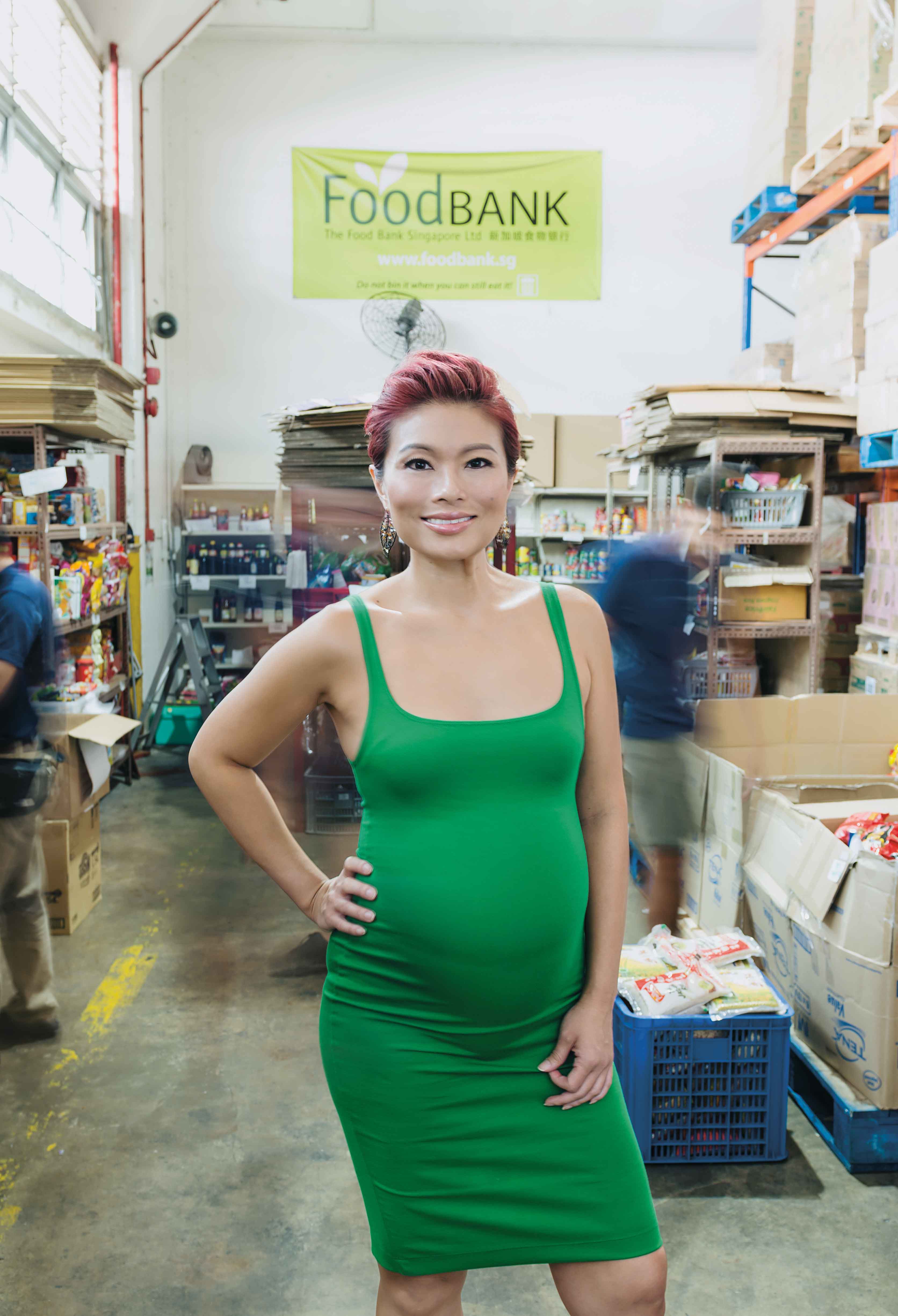
“We were founded in 2012 as an NGO with IPC status,” says Ms. Nichol Ng, co-founder of The Food Bank Singapore Ltd. “Our main activity is the re-distribution of excess food from businesses and the community at large to other charity beneficiaries under our network that in turn run their own food programs to feed the underprivileged. Our mission is to eradicate all forms of food insecurity in Singapore by 2025.” As part of a global food banking network, The Food Bank learns from the experiences of its peers worldwide and helps countries in the region to establish their food banks.
A long-term focus for The Food Bank is educating people through talks that examine food insecurity. They also work closely with national agencies to look at different approaches to feeding the underprivileged by taking into consideration such issues as food safety, environmental implications, and holistic nutrition.
The Food Bank wants to provide everyone living in Singapore access to nutritious food. “As a First World Country with so much material excess, we genuinely believe we have enough to go around.”
Besides collecting all types of food, from non-perishables to cooked food, The Food Bank keeps an eye on emergency food **** that is accessible to the general public through vending machines. “We’re also creating a virtual food banking platform that will help donors and charities match food requirements in real time,” Ms. Ng says. “It’s somewhat like Tinder for food donations.”
The Food Bank was initially funded by FoodXervices, a food distribution business owned by Ms. Ng’s family. In the beginning, she and her brother allocated the logistical, warehousing and manpower support for the collection and distribution of food using their family’s 90-year-old company’s resources. After two years, they outgrew that support and had to start a small-scale fundraising effort. “Today, corporations chip in to support our different programs. This year, we are doing a mass scale fundraising with a target of $1m to support our three innovative new projects.”
Today, The Food Bank has a network of 350 charities and a collection of 720 British tons of excess food. Its targets, however, are not limited to growing the numbers. “Our aim is really to revolutionize how food is collected and distributed, and to increase the nutritional content of all distributed food.”
Ms. Ng views food as a basic necessity as well as a right of every human being. “It saddens us to see so much being thrown away for crazy reasons. In Singapore, where we can get cheap hot meals, there are still people who cannot even afford them. We need to understand that if everyone eats better, they can work better and study better and, hopefully, break out from the cycle of poverty.
“Food is cheaper than medication. I believe that Singapore, which is small enough to manage the logistics well and has a strong infrastructure of community and charities that can help those in need, can eradicate food insecurity. I also believe that as one of the wealthy states, it can play a major role in wiping out food insecurity throughout the region.
Contact Ms. Ng on nichol@foodbank.sg for donations and volunteering activities. More information on www.foodbank.sg.
- MR. BJORN LOW: URBAN FARMS FOR POSITIVE IMPACT
- MS. NICHOL NG: GIVING WITH A VIEW TO THE FUTURE
- PROF. MICHAEL S. STRANO: TO FEED THE WORLD
- MS. SIM BEE HIA: CONSISTENT, RELIABLE, BETTER GIVING
- MR. DANIEL TAY: RESCUING FOOD AS A MORAL ACT
Prof. Michael S. Strano: To Feed the World
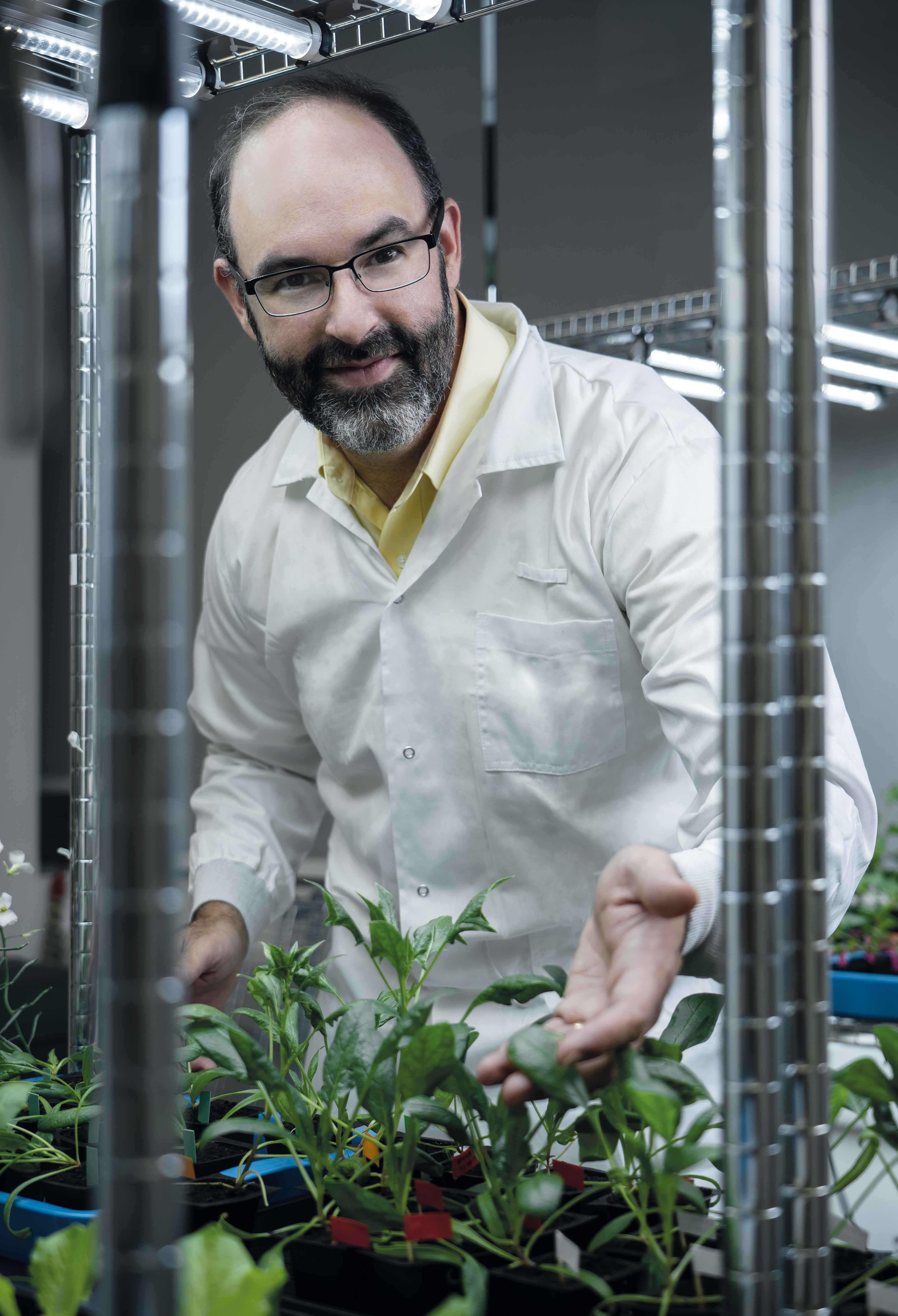
“Disruptive and Sustainable Technologies for Agricultural Precision (DiSTAP) is one of the six interdisciplinary research groups of the Singapore-MIT Alliance for Research and Technology (SMART),” explains Prof. Michael S. Strano, PhD, co-lead principal investigator at the DiSTAP facility and professor at MIT. SMART is MIT’s research enterprise in Singapore.
Located at SMART at the NUS campus, it is the only laboratory in the world capable of combining state of the art spectroscopy, imaging and nanotechnology to study agriculture. These techniques can detect and image the biochemical signaling within living plants that underlies their growth, reproduction, stress responses and other attributes. The goal is to make a new generation of tools to assist urban agriculture, transforming it into a data-driven precision technology to connect it with the digital world. This will make Singapore a leader in precision agriculture and urban farming.
The lab started operations in 2018, and has a variety of components. “We chemically synthesize and refine nanometer-sized sensors that we have learned to place into specific subcellular compartments of the cells of living plants,” Professor Strano explains. “State-of-the-art imaging cameras can capture biochemical signaling within the plant in real time as it is subjected to various stimuli. We are using this information and these new sensor tools to answer fundamental questions about the plant's biology, and helping the efforts to potentially engineer new ones. We are also making this technology into forms that farmers, urban or otherwise, can use to optimize the growth of their crops.”
The lab is also pioneering the use of Raman spectroscopy to “fingerprint,” in a rapid and non-invasive way, biochemicals that are important to plant growth, taste and nutrition. By pointing a laser at the leaves of the plant, the team can study its internal chemistry without harming it. This will also form the basis for new tools to help the urban farm.
“We are also creating new tools that can generate trace gases to which the plants respond in real time. These inputs are an exciting area of plant research and represent a potentially important way to control their growth and natural responses,” says Professor Strano. DiSTAP hopes to create devices to do this from the plant waste itself, contributing to a circular, sustainable economy.
Professor Strano, together with co-lead principal investigator and Temasek Life Sciences Laboratory (TLL) Deputy Chairman Professor Chua Nam Hai, wrote an article for the National Research Foundation (NRF) of Singapore that outlines the vision and overall plans for the facility. “Ultimately, the goal is to create urban farms as plant factors, optimized in real time to grow an array of different crops at different times, depending on consumer demand and market need. Technology like this will be an important part of giving Singapore price stability and other aspects of food security.”
Research that instills innovation and generates global knowledge and economic impact are key pillars at SMART. “We endeavour to be not just first-class researchers, but also to research and develop innovative technologies, products, and applications that will help improve the quality of life for people today and generations to come.”
The potential benefits are numerous: reducing transport costs, time and environmental footprint with agricultural production right smack in the urban center. Additionally, food will be fresher, healthier, and waste can be minimized through upstream waste management. These are all major concerns of the general public and consumers when they purchase and consume food daily. “We hope to further address and alleviate these through our research and innovation at DiSTAP over time.”
- MR. BJORN LOW: URBAN FARMS FOR POSITIVE IMPACT
- MS. NICHOL NG: GIVING WITH A VIEW TO THE FUTURE
- PROF. MICHAEL S. STRANO: TO FEED THE WORLD
- MS. SIM BEE HIA: CONSISTENT, RELIABLE, BETTER GIVING
- MR. DANIEL TAY: RESCUING FOOD AS A MORAL ACT
Ms. Sim Bee Hia: Consistent, Reliable, Better Giving
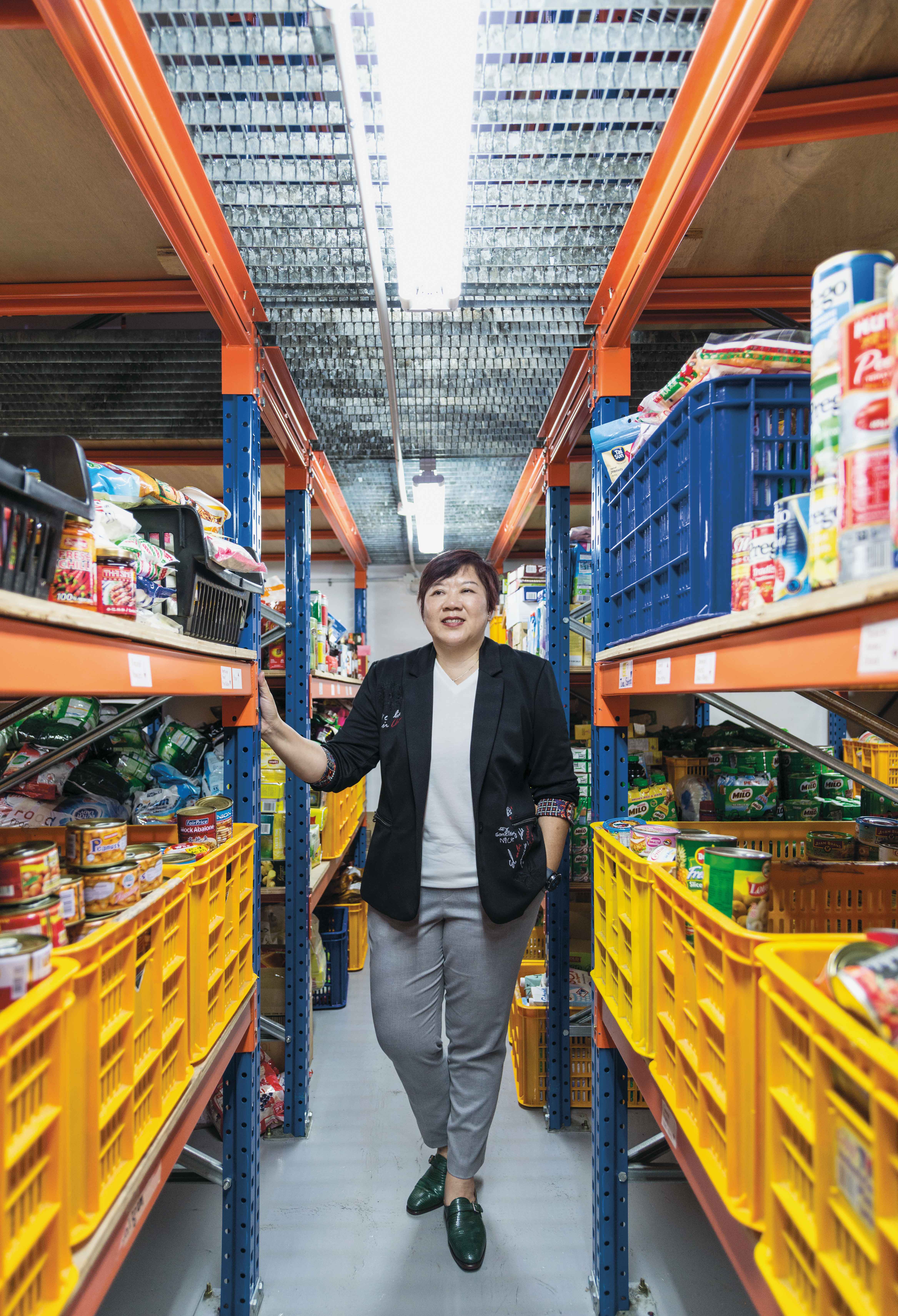
Established in February 2003, Food from the Heart is a leading independent food charity with an IPC (Institution of a Public Character) status “devoted to sharing hope and nourishing lives,” says chief executive Ms. Sim Bee Hia. The organization addresses food insecurity by distributing bread and food packs to the needy in Singapore on a consistent and sustainable basis. “We are a dependable source of food for meals on the table. This takes a load off our beneficiaries, allowing them to focus their limited finances on other living costs.”
Food from the Heart also addresses Singaporeans’ attitude towards giving: “We discovered that although Singaporeans genuinely want to do good, they can be more attuned to the beneficiaries’ needs and be more aware of how, what and when to give.” Giving more, Ms. Sim points out, is not always better.
The main focus of the organization is to “reach out to the needy and brighten their lives by fighting hunger through the efficient distribution of bread rations and food packs, and nourish the soul through birthday celebrations and the distribution of toys”.
The team achieves this by working with schools and corporations on food drives, fundraising projects and sponsorships, as well as with food suppliers who donate food. At the company’s headquarters and warehouse, non-perishable food items are sorted and packed daily by volunteers. Meanwhile, another group of volunteers, the Bread Runners, collects bread from the organization’s 117 partner bakeries and delivers them to the beneficiaries every day.
The food is distributed to more than 200 contact points including grassroots organizations, schools, social service agencies and other charities. “We have also added eggs, oats, fruits and root vegetables into our food packs for a more balanced diet. We started out with the aim to redistribute surplus food to the needy, and have expanded on it since our first Bread Run,” Ms. Sim says.
As an independent charity, Food from the Heart does not receive regular government funding; its operations are funded wholly by donations from corporations and individuals. “We welcome cash donations and sponsorships, and are proud to say that our main annual fundraising event, Passion Ball, scheduled for 18 April 2020, has been very well-received so far,” Ms. Sim says.
“We have been besting ourselves each year,” Ms. Sim reports proudly. “In 2018, we distributed $5.9 million worth of food to more than 40,300 beneficiaries. To us, giving is not just about the numbers; we also strive to give better – to give more nutritious options, a wider variety of food, more ways for people to consume that food, and the dignity of choice to beneficiaries.” This mission has inspired the group’s other initiatives such as pop-up fresh produce markets, and the QR-code hot meal redemption program, Project Belanja!.
“We continue to do our part on sustainability. Our Market Place program collects, saves and passes food items that are not suitable for sale but are still good for consumption to our beneficiaries. We also run an annual Clean Plate Campaign to advocate food waste reduction and highlight that food is precious.”
Food from the Heart hopes to see an equitable increase in the quality of help given to the needy. “We would want to be more holistic in our approach, striking a good balance to achieve better nutrition, provide the dignity of choice to our beneficiaries, and champion food waste reduction. We hope to create more public awareness of donating right so that we can give better. We also hope to appeal to more donors and sponsors to be part of our journey to feed the needy hungry.”
Visit www.foodfromtheheart.sg to make a donation or to sign up as volunteer.
- MR. BJORN LOW: URBAN FARMS FOR POSITIVE IMPACT
- MS. NICHOL NG: GIVING WITH A VIEW TO THE FUTURE
- PROF. MICHAEL S. STRANO: TO FEED THE WORLD
- MS. SIM BEE HIA: CONSISTENT, RELIABLE, BETTER GIVING
- MR. DANIEL TAY: RESCUING FOOD AS A MORAL ACT
Mr. Daniel Tay: Rescuing Food as a Moral Act
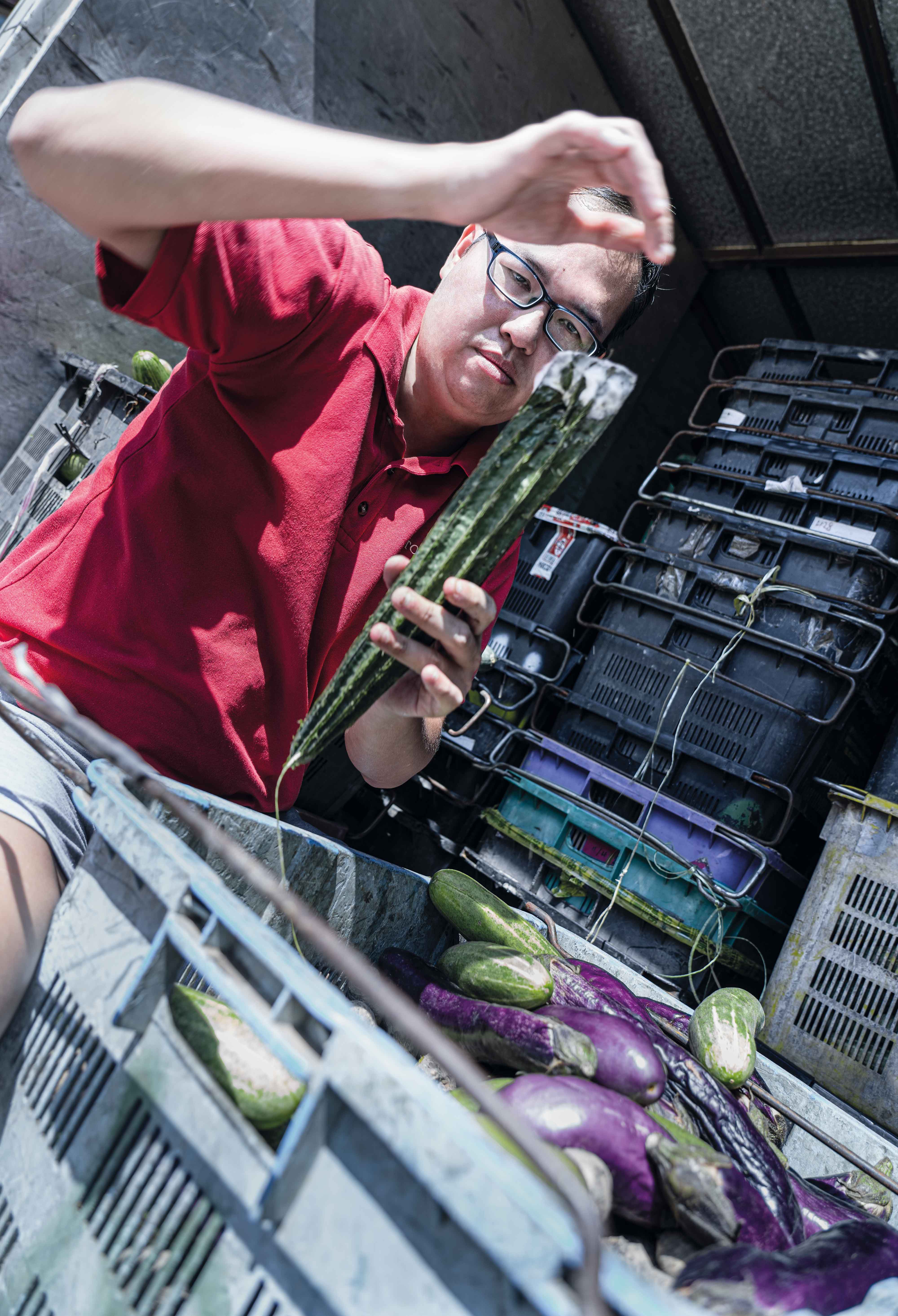
“We are an informal group, a ground up movement,” Mr. Daniel Tay says of SG Food Rescue, the organization he co-founded and runs. “We are not a registered charity organization.” Despite this, he has seen a steady growth in the number of volunteers and partners that have been supporting the organization since it started operating in February 2018.
“We want to reduce food wastage by raising people’s awareness of it through our activities and programs. In 2018, Singapore wasted 763,000 British tons of food. We want to show everyone that a lot of food waste created by the supply chain is safe for human consumption.”
SG Food Rescue started out by offering to collect unsellable but edible food from suppliers, which the group redistributes to those who can still use it. They focus on food that other charities do not want, such as fresh produce, expired food, and some cooked food that are headed for disposal. To date, the team's efforts to raise food waste awareness has resulted in major media exposure in Singapore as well as in Hong Kong, Thailand, and Malaysia.
The group obtained one round of Give.Asia crowdfunding when it started out. Today, it organizes paid food rescue programs for companies and schools that want their organizations to experience food waste firsthand. “From the time we started, we have rescued an estimated 150 British tons of fresh produce,” Mr. Tay says proudly.
SG Food Rescue is focused on financial sustainability that will provide them with resources over the long term. “That will allow us to expand our current programs and create new ones that will involve more people reducing food waste in Singapore,” Mr. Tay expounds.
Supporting this vision are three corporate programs that the group has been running for companies and schools that require CSR projects or learning journeys. “The companies and schools who worked with us have indicated that their people benefited from the experience. We plan to continue our programs with more companies and schools. We also plan to work with other environmental groups and businesses to provide such programs for their customers.”
Mr. Tay explains that food security inevitably creates food waste because the supply is higher than the consumption. However, a country’s food security does not guarantee the same for all citizens, he says. “A country may have more than enough food for everyone, but not everyone in that country has the same access to the supply. Some people simply cannot afford sufficiently nutritious food.”
Mr. Tay finds it immoral that some sectors of Singapore society are responsible for throwing away tons of edible food while the other sectors are food insecure. “On a global scale, it is also immoral that wealthy nations buy up so much food that they eventually throw away while the poor countries have limited access to what’s left.”
He views the problem as systemic, one that is driven by an economy that places profits before people. “I wish there were a better system that would waste less food while providing everyone better access to nutritious food.”
To volunteer or partner with SG Food Rescue, email them at sgfoodrescue@gmail.com. Follow their activities on Facebook.


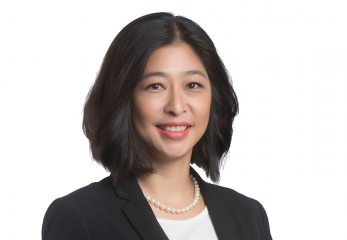
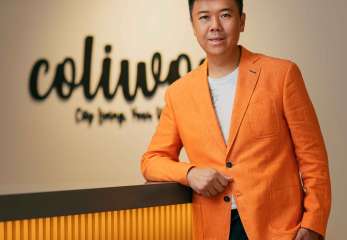

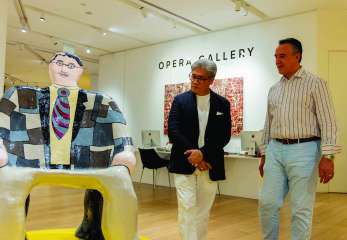
-ADiN.jpg&w=347&h=240&crop-to-fit)






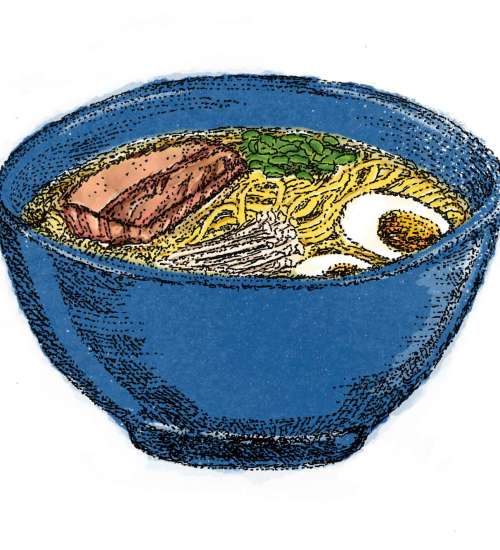
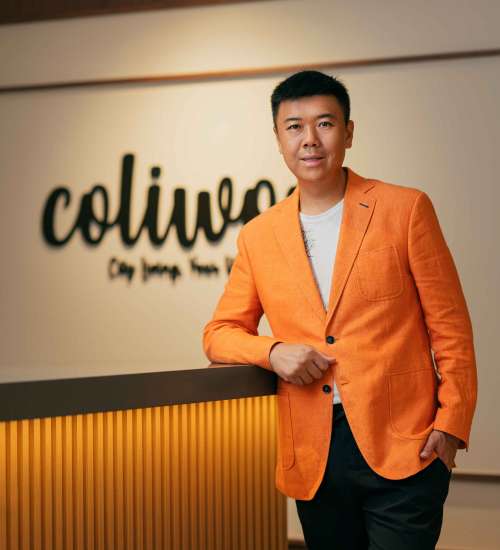
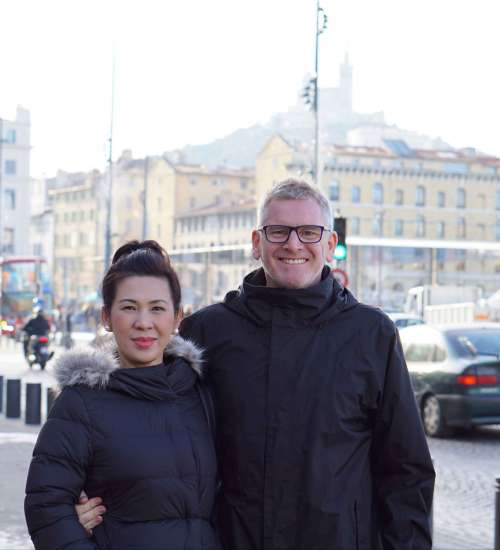
 Back
Back
